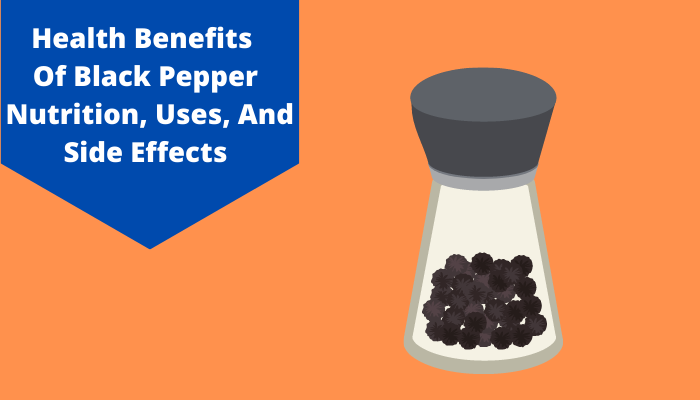We all know about the humble black pepper which is regarded universally as the King of Spices. Black pepper uses are plenty and it is a staple in Indian kitchens as well. However, did you know that there are many health benefits of pepper? Yes, consumption of black pepper can boost your system considerably as per several studies. From weight loss and detoxification to combating cancer and red blood cell production, there are multifarious advantages offered by black pepper. Learn more about these benefits in this article.
Black Pepper Nutrition Facts
What is black pepper? It comes within the Piperaceae family and the peppercorn or fruit is cultivated and dried, before being used as a major spice and also for seasoning. A teaspoon will contain the following:- Calories- 6
- Carbohydrates- 1g
- Fibre- 1 g
- Fat- 0g
- Sodium- 0g
- Cholesterol- 0mg
Top 10 Black Pepper Benefits
Here’s taking a closer look at the 10 biggest health benefits of pepper:1. Combats Cancer
Black pepper may contribute toward combating cancer when consumed in a mixture with turmeric. It may be consumed through milk as well. It will infuse cancer-combating elements into the body as per several reports.2. Helps with Digestion
One of the primary black pepper uses is to improve digestion. Consumption in its raw form ensures the release of hydrochloric acid and breakdown of proteins alike. The former helps in cleaning up the intestines while keeping other gastrointestinal ailments away.3. Reduces Constipation
Pepper greatly helps in tackling constipation. It also reduces diarrhea and several other ailments of a bacterial nature. Excessive consumption is not recommended however.4. Boosts Skin Health
It reduces the chances of Vitiligo or pigmentation of the skin. Black pepper also reduces wrinkles and other premature aging signs along with dark spots. You can crush a little black pepper before applying it to your skin in this case.5. Enhances Hair Health
Black pepper is good for ensuring hair health. You can crush a little black pepper, add some curd to it and then put it over your scalp. Wait for approximately half an hour. Ensure that you do not use excessively high amounts. Do not use shampoo for at least 24 hours after applying this mixture. You can also add lime to the same. Wash off the entire thing after half an hour for smooth and glowing hair.6. Helps You Lose Weight
s magical spice can also help with weight loss. It may be infused into green tea and consumed periodically (2-3 times each day). This may help in losing weight and burning fat alike, while stimulating better metabolism as well.7. Combats Depression
Black pepper, when consumed in its raw form, may help in lowering depression and enhancing overall mood. Chewing it will release brain chemicals that calm and soothe the mind.8. Treats Respiratory Ailments
Cold, cough and other respiratory issues may be treated with the help of black pepper. You can add it to green tea or milk (with some turmeric too). You can add a little bit of this spice to your meals in the winters for keeping these respiratory issues away.9. Lowers Joint Pain
If you are suffering due to arthritis or joint pain, you can count on black pepper to relieve the same, with its medicinal attributes. It also helps in tackling gout along with joint and spinal pain.10. Helps with Body Detoxification
Black pepper helps in detoxifying the body considerably. It helps in stimulating frequent urination and sweating, enabling discharge of all harmful body toxins as a result.Black pepper also comes with several other benefits including curbing inflammation, enhancing blood sugar levels, boosting brain health and lowering cholesterol levels.


